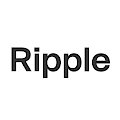In the past decade and a half or so, cryptocurrencies and blockchain have rapidly evolved from niche areas of finance and technology into more of the mainstream. And not only have cryptocurrencies like Bitcoin attracted significant investor interest, but so have many companies that provide technology and services around digital assets.
One of those companies is Ripple, a fintech company with its own cryptocurrency, XRP, that helps facilitate cross-border B2B payments.
In conjunction with crypto's recent bull run following the 2024 U.S. election — such as with Bitcoin crossing the $100,000 per coin mark in December 20241 — Ripple has also been on a tear, with its Forge Price valuation more than doubling in recent months.2
While Ripple has not announced any definitive plans for an IPO, changes at the SEC stemming from the new presidential administration could help pave the way for the company to go public at some point. Indeed, Ripple CEO Brad Garlinghouse stated in 2024 that the company was not prioritizing an IPO in part because of its clashes with the SEC, but that changes to SEC leadership could help the crypto industry, and Ripple was not ruling out an IPO in the future.
For now, though, Ripple remains a private company, and thus investment may be more limited, but there can still be avenues to gaining direct or indirect exposure.
Here, we'll take a closer look at how to invest in Ripple stock pre-IPO.
Ripple: Company background
Ripple started in 2012, with its origins based on the launch of the XRP distributed ledger in 2012, created by three engineers, David Schwartz, Jed McCaleb, and Arthur Britto. The ledger and its associated currency, XRP, began with the intention of being a more efficient alternative to Bitcoin.4
Shortly after launching the XRP ledger, the co-founders were joined by fintech entrepreneur Chris Larsen to create the company now known as Ripple.5
A key part of Ripple's business is facilitating cross-border B2B payments, which can be done by using XRP as a bridge currency or via Ripple's systems that still allow for fast processing of other international currency transactions. Ripple also provides digital asset custody solutions and has its own stablecoin offering.
But rather than serving individual consumers like some other crypto services companies like Circle, Ripple focuses on the finance industry, serving customers such as banks, neobanks, payments companies, and other crypto businesses.6
While Ripple has grown significantly over the years, along with its associated XRP currency, it has also been engaged in legal battles with the SEC in recent years. The SEC charged Ripple with unlawful sales of unregistered securities by selling XRP and was seeking $2 billion in fines last year,7 but a federal judge ruled in August 2024 that Ripple only had to pay $125 million.8
Although there's continued to be some dispute between the SEC and Ripple since then, some have speculated that changes at the SEC due to the new presidential administration could help bring an end to the issue.9
Meanwhile, developments in the crypto industry could potentially help Ripple, such as with Grayscale Investments filing with the SEC in January 2025 to create an XRP ETF.10
Ripple stock and funding history
Ripple's funding and stock price have grown substantially in recent years. The Ripple Series A in 2015 raised over $40 million at a price per share of $0.89 and a valuation of $162.53 million.11 This round included investment such as from the venture arms of CME Group and Seagate Technology.12
The Ripple Series B in 2016 then raised another $52.46 million, bringing the stock price to $1.91 per share and the valuation to $398.39 million. This round included investors such as SBI Holdings, Standard Chartered, and Accenture Ventures, among many others.13
Ripple's last primary funding round in 2019, its Series C, marked a huge jump, with the company raising $200 million at a stock price of $61.49 and a valuation just shy of $10 billion.14
In recent months, Ripple's Forge Price has seen strong growth, with gains of 30.6% over the last three months ending mid-March 2025, compared to 27.1% returns for the private market FinTech sector tracked by Forge and 34.2% gains for the Forge Private Market Index.15
Forge Price™ is a derived data point that reflects the up-to-date price performance of venture-backed, late-stage companies, and is calculated based on a proprietary model incorporating pricing inputs from primary funding round information, secondary market transactions, and indications of interest (IOIs) on Forge.
How to buy Ripple stock
Because Ripple is a private company, its stock is not for sale to the general public. If Ripple does eventually have an IPO, then its stock would be more readily available.
In the meantime, investment is generally limited to high-net-worth or institutional investors invited to participate in primary funding rounds or strategic investments. Or, if existing investors decide to/are able to list shares for sale on a secondary marketplace like Forge, then accredited investors could potentially buy pre-IPO Ripple stock.
Who can invest in Ripple pre-IPO?
Due to regulations on investing in a private company offering securities for sale, you generally have to be either an institutional or high-net-worth individual chosen to participate in primary funding rounds to invest in Ripple pre-IPO or reach an agreement with the company to be a strategic investor outside of primary funding rounds.
However, sometimes private company shareholders like employees or early investors list pre-IPO stock for sale on a secondary marketplace, such as Forge. In those cases, accredited investors — those who meet certain financial or professional qualifications — could then invest in Ripple pre-IPO, if available.
Where to buy pre-IPO Ripple stock
Because Ripple is a private company, Ripple stock is limited in terms of who can buy shares and where. However, accredited investors may be able to buy Ripple stock pre-IPO through a secondary marketplace such as Forge, subject to availability. Yet that is dependent on existing Ripple shareholders listing on Forge, so availability can be limited, if trading at all.
That said, those who are interested in investing in startups such as Ripple pre-IPO may wish to create an account with Forge and speak with a Private Market Specialist to stay informed about whether pre-IPO Ripple stock or similar shares become available through Forge.
Alternatives for unaccredited investors who want to buy Ripple stock
For retail investors who want to buy Ripple stock before it potentially conducts an IPO, there are some ways to gain exposure through other vehicles.
One option is to buy Ripple's associated cryptocurrency, XRP, which is available through various platforms such as Robinhood or Coinbase. While Ripple and XRP are not interchangeable, there's a correlation. In general, if Ripple keeps growing, that could increase demand for the XRP currency, so retail investors might benefit that way. However, XRP's value also depends on trends in the broader crypto industry, and it's possible that Ripple's valuation grows based on its non-XRP-based services.
Another option is to invest in publicly traded companies like CME Group, which have invested in Ripple. However, this correlation is likely minimal, as that's just one small part of CME Group's business. Still, both Ripple and CME Group are financial services companies, so there's a chance that growth in financial services overall lifts both companies.
To that point, investing in a diversified ETF or mutual fund of publicly traded financial services companies could provide some correlated exposure to Ripple. More specifically, investing in publicly traded companies with more direct crypto ties, like Coinbase, could also be an option, as growth in the crypto industry could potentially benefit both companies. Still, there's no guarantee they move in the same direction.
How to analyze Ripple stock
As a private company, details on Ripple's financials are relatively limited, and thus analyzing Ripple stock can be more complicated than it is for publicly traded companies.
However, looking at data such as the progression of Ripple's primary funding rounds, its acquisitions, and movement in related areas like the XRP cryptocurrency could potentially provide some insight into what Ripple stock should be valued at — particularly when comparing Ripple's valuation to other startups trading on private marketplaces like Forge. That said, this manner of analysis can still be quite subjective and speculative.
Likewise, looking at how other crypto-related public companies like Coinbase or payments companies like PayPal are valued might provide some clues. However, private companies have different valuation factors based on factors such as liquidity risk, and regardless, it's hard to draw clean comparisons between these other types of companies and Ripple, so investors may have to come up with more personalized analysis.
Get started investing in Ripple on Forge
If you want to invest in Ripple pre-IPO if/when shares become available, create an account with Forge marketplace to access our deep marketplace of private market securities.
When you create a free account, you'll be connected with a Forge Private Market Specialist to determine your eligibility, and from there you can potentially buy and sell private market shares in Ripple and other startups.
Forge stands out for its transparency into what can otherwise be an opaque private market, and as a publicly traded company itself, Forge provides a regulated, proven way to invest in the private market.





